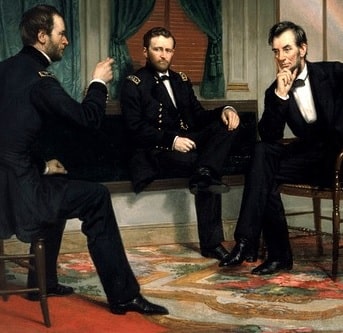| Back to Back Issues Page |
 |
|
Reasons for Thanksgiving: presidential hopes & Pilgrim facts. English Detective # 117 November 06, 2018 |
Reasons for Thanksgiving: Presidential Hopes & Pilgrim FactsThere have been Thanksgiving celebrations in what’s now the U.S. since the earliest settlements, but it’s only been a yearly national holiday since the Civil War. There’s a lot more to the story than students learn in elementary school.
The “Mother” of ThanksgivingHistory.com goes into more detail about Sarah Hale, who campaigned for years to make Thanksgiving a unifying national holiday. She finally saw it happen in 1863 when Lincoln and his Cabinet also were looking for ways to heal and unite the still-broken nation.The article also goes into detail about some earlier Thanksgiving celebrations and the origins of some Thanksgiving traditions. Thanksgiving, Unity-- & InclusionI loved the picture the Chicago Tribune gives of Lincoln’s broader purposes in making Thanksgiving a holiday—as well as in his other decisions. It emphasizes his desire for unity, as well as for ending slavery—a move he waited to make until he could justify it as a war measure.About the Emancipation Proclamation, it says “Critics have argued Lincoln should have included states in the Union, but that would have been illegal and unwise.” (It explains why.) I was stunned by what follows: “By design, the Emancipation Proclamation is a detailed dry document that makes the case for removing property, with emphasis on procedure.” (The bolding is mine.) Everyone knew Lincoln opposed slavery. He didn’t need to make an eloquent, dramatic proclamation, and he definitely did not want to further provoke those who disagreed by underlining that victory. The article summarizes its point: “Lincoln used practical means for transcendent goals. Give thanks.” There’s quite a bit of overlap in the three articles, but each emphasizes different aspects and provides unique perspective and extra information (as well as a chance to review the main vocabulary.)
Vocabulary Practice: Thanksgiving‘Issue’ comes from the idea of going out, and has a number of meanings.An issue (noun) can be one of a series of magazines (or other things like stamps) sent out. (This is issue #117 of English Detective. I’ve already sent it out 116 times, and expect to continue sending it.) An issue can also be a problem or topic being discussed. (“Immigration is a major issue in the U.S. and Europe right now.”) To issue is to go out from a place (“the river issued from a spring on the side of a hill”) or more commonly to send something out. Government agencies can issue money, stamps, and warnings as well as proclamations. The origin is where or when something began—its source. Original is an adjective or noun that means something was present at the beginning. An original is not a copy. An original person thinks up his/her own ideas and doesn’t just follow the ideas of other people. To originate is to start from a particular place. To proclaim is to make an official declaration about something. (It’s from the Latin root meaning to shout. So are acclaim, exclaim, & exclamation.) A proclamation is an important official announcement. A tradition is a long-established a custom. Traditional is an adjective referring to the way things have been done for years in an area or a culture. You can practice these words with a true/false and matching quiz. (The answers are on page 3.) English Detective will have one more issue before the American Thanksgiving holiday. (The Canadian Thanksgiving is already past.) I don’t know about other thanksgiving celebrations, but I hope you will have (or have had) a happy one. Warmly, Catherine Simonton, EnglishHints.com P.S. If you don’t like to open links in emails, you can go to the EnglishHinks Back Issues page and open them there. It’s https://www.englishhints.com/English_Detective-backissues.html A note if you get gmail: Have you missed any issues of English Detective? if you find English Detective in your Promotions box, you can move it to your Primary box (if you want) by clicking on it and dragging it there, then clicking Yes when asked if you want to always get it in the Primary box. If you are not already getting English Detective, you can subscribe by completing the form here. (It's free!) Also, you can reach me by mail at 1752 Driftwood Drive, El Centro, CA 92243, USA. |
| Back to Back Issues Page |
